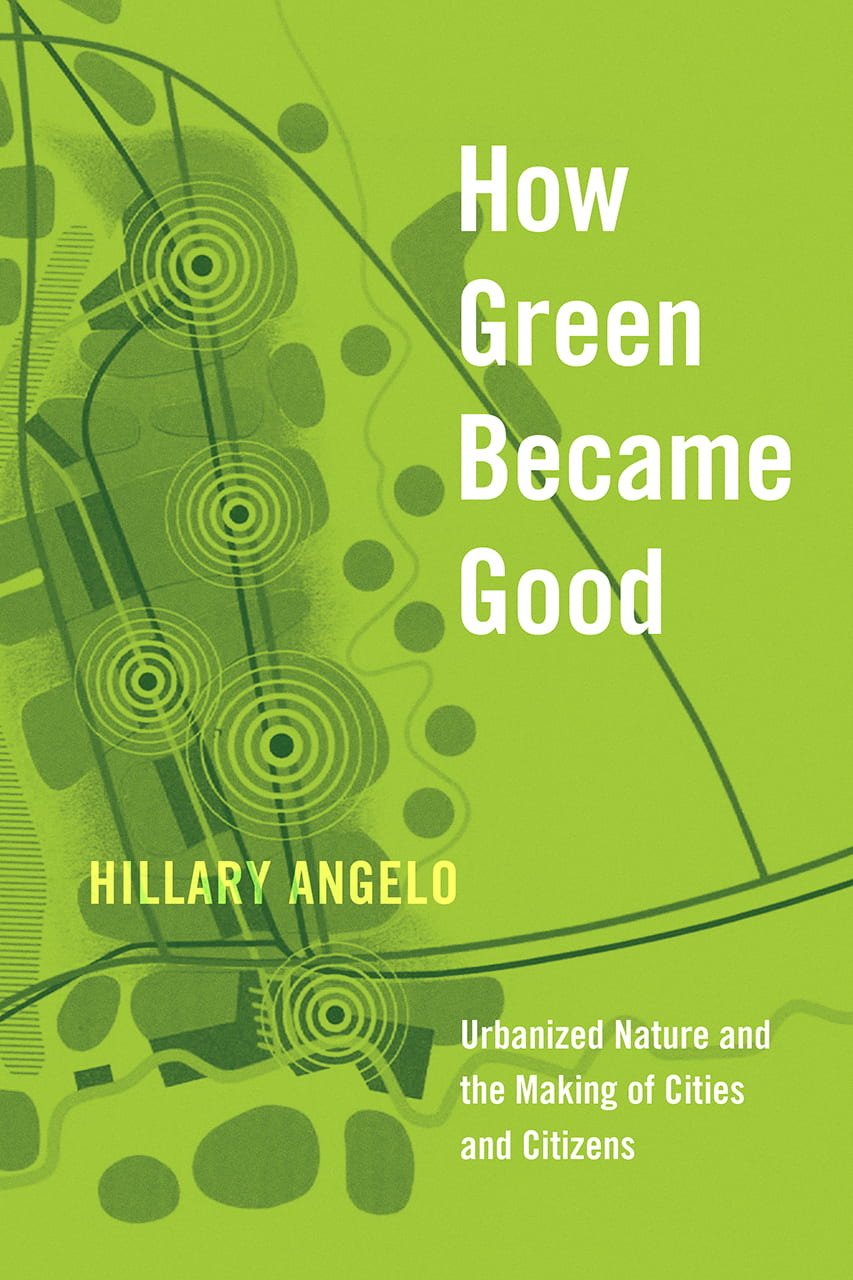On Friday, April 30, 2021 from 12:00pm–1:00pm PDT, S&J affiliate and Assistant Professor of Sociology Hillary Angelo, joined in conversation with Robin Wagner-Pacifici, Neil Brenner, and Claudio Benzecry to discuss and celebrate the launch of her book, How Green Became Good:Urbanized Nature and the Making of Cities and Citizens.
The book is available at: The University of Chicago Press (use discount code UCPSOC for 20% off)
About the Book and Conversationalists

Book Cover for Hillary Angelo’s How Green Became Good: Urbanized Nature and the Making of Cities and Citizens (University of Chicago Press, forthcoming 2021)
As projects like Manhattan’s High Line, Chicago’s 606, China’s eco-cities, and Ethiopia’s tree-planting efforts show, cities around the world are devoting serious resources to urban greening. Formerly neglected urban spaces and new high-end developments draw huge crowds thanks to the considerable efforts of city governments. But why are greening projects so widely taken up, and what good do they do? In How Green Became Good, Hillary Angelo uncovers the origins and meanings of the enduring appeal of urban green space, showing that city planners have long thought that creating green spaces would lead to social improvement. Turning to Germany’s Ruhr Valley (a region that, despite its ample open space, was “greened” with the addition of official parks and gardens), Angelo shows that greening is as much a social process as a physical one. She examines three moments in the Ruhr Valley’s urban history that inspired the creation of new green spaces: industrialization in the late nineteenth century, postwar democratic ideals of the 1960s, and industrial decline and economic renewal in the early 1990s. Across these distinct historical moments, Angelo shows that the impulse to bring nature into urban life has persistently arisen as a response to a host of social changes, and reveals an enduring conviction that green space will transform us into ideal inhabitants of ideal cities. Ultimately, however, she finds that the creation of urban green space is more about how we imagine social life than about the good it imparts.
Hillary Angelo is Assistant Professor of Sociology and affiliated with the SJRC at the University of California, Santa Cruz.
Claudio Benzecry is Associate Professor of Communication Studies and Sociology (by courtesy) at Northwestern University. He is the author of The Opera Fanatic: Ethnography of an Obsession (University of Chicago Press, 2011) and the author of The Perfect Fit: Creative Work in the Global Shoe Industry (forthcoming 2021).
Neil Brenner is the Lucy Flower Professor of Urban Sociology at the University of Chicago. His most recent books are New Urban Spaces: Urban Theory and the Scale Question (Oxford, 2019) and Critique of Urbanization: Selected Essays (Bauwelt Fundamente, 2016), as well as the edited volume Implosions/Explosions: Towards a Study of Planetary Urbanization (Jovis, 2014).
Robin Wagner-Pacifici is a University Professor affiliated with the Department of Sociology at The New School for Social Research. She is the author of a number of books, most recently What is an Event? (University of Chicago Press, 2017) and The Art of Surrender: Decomposing Sovereignty at Conflict’s End (2005).


